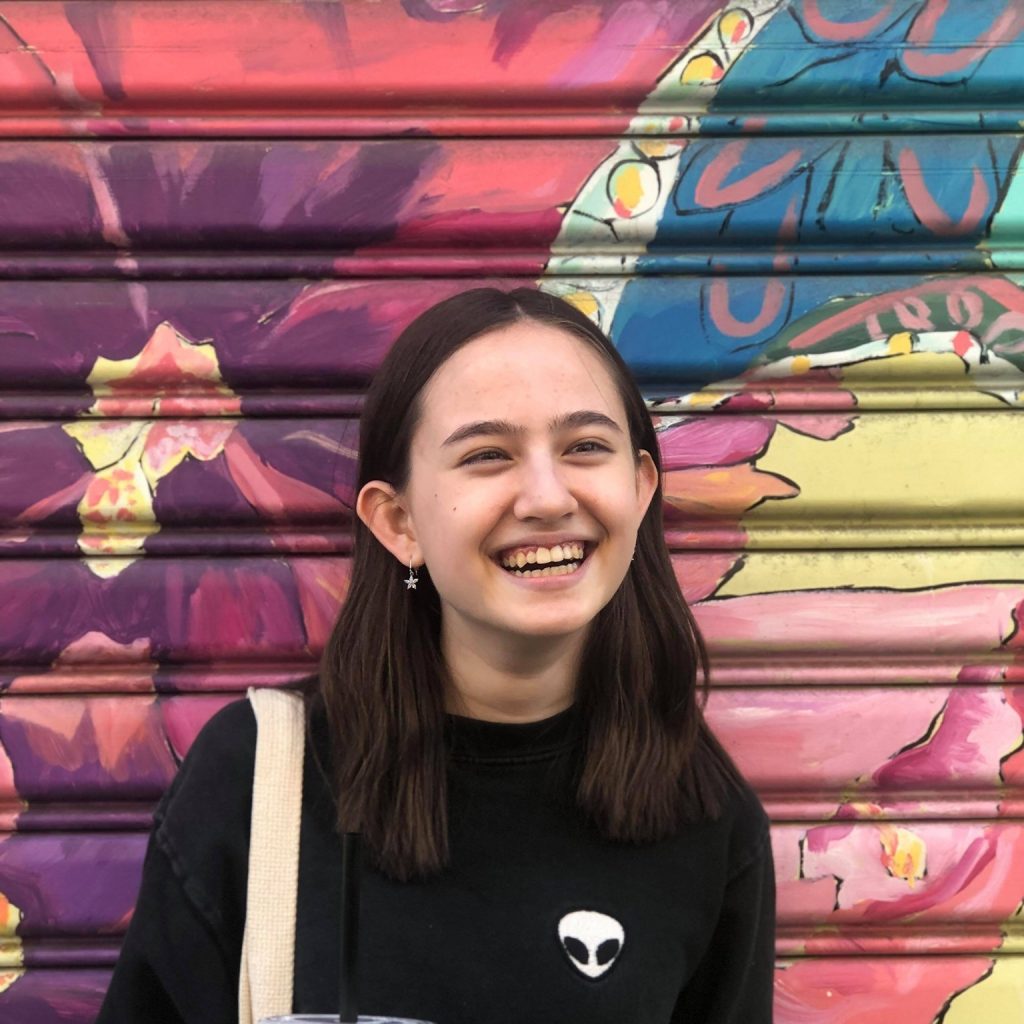We’re thrilled to bring you this month’s Future Friday – a creative nonfiction piece by May Hathaway.

May Hathaway is a high school student in New York City. Her work appears or is forthcoming in Blue Marble Review, perhappened, and Sandpiper Magazine and has been nationally recognized by the Scholastic Art & Writing Awards. She is a 2020 Adroit Journal Creative Nonfiction Mentee and enjoys doing crosswords in her free time.
How To Immigrate
1. The immigrant narrative was set in stone by the time my mother got off the plane at JFK, her first and only one-way trip to date. She knew the role she was meant to fill and stepped off the plane anyway, suitcase rolling behind her.
2. My mother avoids the word “immigrant,” but I cling on to the label of “first-generation” because it is the only identifier that can explain my upbringing.
3. In Chinese school at age six, I learned the phrase yi min. Literal translation: shifted people. I imagined continents rearranged, like Pangea, not my mother hopping over the Middle East and Europe and the Atlantic Ocean before the hair at her temples turned gray.
4. The immigrant body stripped of its functionality is just a body.
5. I often wonder about the logistics of immigration, though my mind always manages to find routes around that word; my mother and I are both afraid of confronting reality sometimes. More specifically, I wonder about the intricacies of moving to a foreign nation—how many suitcases would you need to check? One of the many issues with moving somewhere where no one knows you is that there is nobody to help you with your bags at the airport.
6. So much current literature refers to us as a faceless, nameless horde. By “us,” I mean immigrants and the children of immigrants. By “current literature,” I mean every story.
7. I am not the daughter of immigrants. I am the daughter of an immigrant. The distinction matters because it makes saying “first-generation” feel fraudulent.
8. When I was younger, I loved how-to books. How to bake a cake. How to start a lemonade stand. How to become an astronaut. Never did I wonder how to immigrate.
9. My mother and I are not minimalists, so I cannot imagine her packing all of her belongings into suitcases, but that is what she did at the age of thirty.
10. Another issue: real estate. Last summer, my parents and I moved into an apartment we had toured three times before committing to living in it. My mother is picky about everything: sunlight, square footage, feng shui.
11. Sometimes, I read stories about immigrant bodies with no eulogies. Sometimes, I see their faces on newspapers strewn across avenues. Sometimes, I close my eyes and think I’m sorry I’m sorry I’m sorry.
12. My mother had a small wedding—her dress was navy and contained no ruffles—but she has made me promise that I will throw her a big funeral.
13. My history books like to refer to America as the “promised land,” but the only promise any nation can keep is the certainty of erasure. America excels in this area.
14, A lesson from my mother: Americans are bullshits artists. She does not clarify on our car ride home from school, not even when I dig my chin into the passenger seat in front of me and press my palagainst the center console until my wrists ache from bending. She mutters these four damning words over and over and over until I finally realize that I am expected to understand and internalize (though I still don’t get it, not really).
15. Immigration inherently calls for blank space—a hollow place where your home should be, a new culture to transplant like an extra organ.
16. Items in my mother’s suitcase, circa 1998: two photo albums, batteries, a stamp collection from her teenage years. Omissions: college textbooks, her extensive Celine Dion CD collection, a sense of belonging.
17. Another lesson from my mother, her forehead pressed against my bedroomwindowpane: Americans love summertime. The neighbors are hosting a cookout and their dog is barking noisily. Damn pitbull. Our invitation got lost, I think. My eyes burn from the smoke seeping in through the screen door, charred meat and mayonnaise.
18. Identity politics is less of a noun than it is a verb—a way of commodifying immigration for consumption, a way of survival.
19. A confession: when I was six years old, I tried to widen my eyes, pinch my nose bridge higher. I tried to forget how to tighten my lips into Chinese characters, how to speak with my immigrant tongue. Erasure is transgenerational.
20. Final lesson: Americans live for emptiness, and my mother is nothing if not a vessel.
![[PANK]](https://pankmagazine.com/wp-content/themes/pank/assets/images/pank-logo-large.png)
